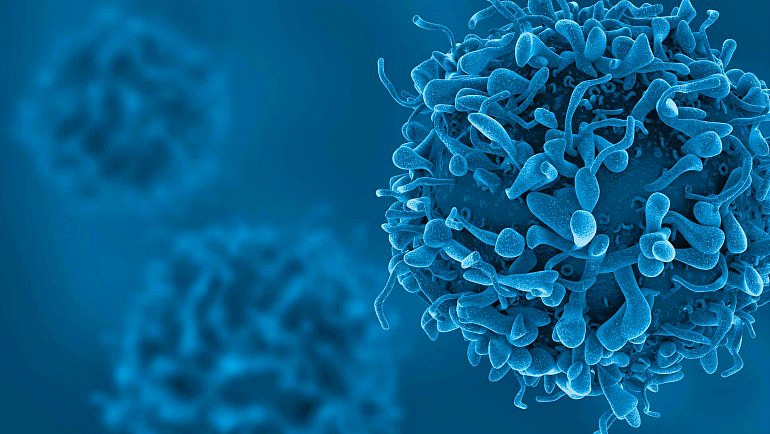Wayne State, Karmanos receive $3.1 million NIH grant to improve quality of life for African American cancer survivors

African Americans have the lowest survival rate of any racial or ethnic group in the United States for most cancers – a problem that is magnified in southeast Michigan. These differences are often due to socioeconomic disparities that result in unequal access to medical care, health insurance, healthy food and more. African Americans who survive cancer also have the shortest survival of any racial/ethnic group in the United States for most cancers, according to the American Cancer Society.
A team of researchers from Wayne State University and the Barbara Ann Karmanos Cancer Institute are investigating the combined role that community, interpersonal and individual influences have on the health-related quality of life for African American cancer survivors, and how those influences create racial health disparities between African Americans and white survivors. The team includes Felicity W.K. Harper, Ph.D., associate professor of oncology in the Wayne State School of Medicine and the Karmanos Cancer Institute; Malcolm P. Cutchin, Ph.D., professor in the Institute of Gerontology and the Department of Health Care Sciences in Wayne State’s Eugene Applebaum College of Pharmacy and Health Sciences; and Hayley Thompson, Ph.D., professor of oncology in the School of Medicine and associate center director for community outreach and engagement at Karmanos.
The study, “ARISE: African American Resilience in Surviving Cancer,” is a five-year, $3.1 million project funded by the National Cancer Institute of the National Institutes of Health that aims to identify targets of change and inform the development of interventions to address causes of poorer health-related quality of life experienced by African American cancer survivors.
The study aims to recruit 600 African American cancer survivors living in metropolitan Detroit. The team will work to create a theoretically and community-grounded model of variability in health-related quality of life in African American survivors. They will evaluate the success of the collaboration with a systematic evaluation of community stakeholders’ perceptions of — and attitudes toward — the collaboration experience. They will also collaborate with community stakeholders to disseminate study findings to scientific and lay audiences, translate study findings, and inform future interventions.
“Our team is thrilled to have this unique opportunity to better understand how the cancer experience affects African American people in the tri-county area,” said Harper. “While there has been much research on how white cancer survivors experience cancer, there is comparatively little study of African Americans and how factors unique to this community may influence their quality of life after cancer. With this NIH grant, we will have an unprecedented opportunity to explore how individual health and race- and neighborhood-related factors such as medical mistrust, neighborhood poverty and segregation may affect longer-term outcomes for this population. We look forward to partnering with the local community both in conducting this groundbreaking research and designing interventions to improve quality of life for African American cancer survivors.”
This study is innovative because it will involve community stakeholders in aspects of the work typically limited to academics.
“We will review and revise our conceptual model in partnership with Karmanos Cancer Institute’s Cancer Action Council network,” said Thompson. “The councils are groups of cancer survivors, caregivers and advocates around Southeast Michigan who have received training in research methods and use their own local expertise to strengthen our efforts to reduce the region’s cancer burden. We believe this is an important step toward health equity.”
The paths through which race-related community, interpersonal and individual domains of influence may affect the health-related quality of life of African American survivors has not been comprehensively studied, nor has there been a strong community engagement to develop and test a social-ecological model with follow-up to disseminate study findings with the community.
"With this award, we have the unique opportunity to assess various levels of factors that potentially affect the quality of life for African American cancer survivors,” said Cutchin. “Those factors range from neighborhood conditions to experiences of racial discrimination to personal optimism. I'm very excited to work with this team and have a chance to inform future interventions for this population."
The grant number for this National Cancer Institute project is 232514-01.
About Wayne State University
Wayne State University is one of the nation’s pre-eminent public research universities in an urban setting. Through its multidisciplinary approach to research and education, and its ongoing collaboration with government, industry and other institutions, the university seeks to enhance economic growth and improve the quality of life in the city of Detroit, state of Michigan and throughout the world. For more information about research at Wayne State University, visit research.wayne.edu.